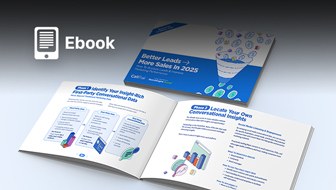Every so often I check back in on AdWords. Quite some time ago now the company “bifurcated” AdWords into a simplified “Starter Edition” and a “Standard Edition.” Starter edition is in fact simpler – much simpler – for new advertisers (small businesses). I finally walked through the process, which is still extensive, but it was impressively simplified.
Earlier this week Google’s Jonathan Rosenberg said the following on the Google earnings call this week about Starter Edition:
So basically the AdWords Starter Edition is an alternative version of AdWords, and it’s a lot easier for novices to get into search advertising. It’s got a much simpler UI. I’m not sure in terms of color how much I can offer you. We have been using it extensively. We have been tracking the percentage of advertisers who start with AdWords Starter Edition who then actually are successful in getting their work to manifest itself in the form of a working campaign; and who then continue to opt into our ad systems.
We are doing much, much better there on a percentage basis in terms of getting the advertiser signed up. So in that sense, it has been successful. We are also then getting a number of those advertisers using AdWords itself. So the take rates are strong.
There are lots of FAQs on the site and a local targeting demo. But once a business enters the sign-up process is where it gets interesting. I you choose Starter Edition, you’re asked if you have a “web page” or not and, if not, whether you’d like Google to help you create one:
Starter Edition
Advertise a single product or service with simplified options. Recommended for those who are new to Internet advertising. Move up to the Standard Edition at any time.I have a webpage.
I don’t have a webpage. Help me create one.
The wizard then asks some standard questions and has fields related to business location, forms of payment accepted, business description, hours of operation and so on. You’re then able to choose from among some rudimentary layouts and upload a logo or photo (see my example below). You can also display your location on a Google map as part of the page. The process took me about 5 minutes. Here’s an example page without a Google map.
Click the thumbnail below to see the mock landing page I created (not my real address):

The next section asks the user to create ad text, add keywords and select a monthly budget. The keyword tool, which was a bit buried, can either suggest keywords on the basis of a basic list or advertisers can plug in a URL to generate suggested keywords. For slightly more advanced novices one can see search volumes and “advertiser competition” for hypothetical keywords, which can individually or collectively be selected by clicking “add.” But within the workflow Google suggests categories of keywords that give users, with similar one-click ease, the ability to ad some or all the suggested keywords.
In other words, Google has greatly simplified the process of generating keywords for novice advertisers. It has also essentially entirely removed bidding on keywords from the process. Here’s the copy associated with choosing a budget (independent of keywords):
What is your monthly budget?
AdWords shows your ad as often as possible within the budget you set. You’re charged a small portion of the budget each time a user clicks your ad, so the higher your budget, the more ad impressions and clicks you may receive. You won’t be charged more than this amount each month (though in some cases you may be charged less).$30 per month
$100 per month
$500 per month
$ __ per month
You then create and validate the account and provide credit card information and, presumably, it’s up and running within a short period of time. This process is still imperfect to be sure and it may not result in the most effective campaign, but it is radically simpler than what it used to be for novices.
–
Greg Sterling is the founding principal of Sterling Market Intelligence, a consulting and research firm focused on online consumer and advertiser behavior and the relationship between the Internet and traditional media, with an emphasis on the local marketplace.






![AI Overviews: We Reverse-Engineered Them So You Don't Have To [+ What You Need To Do Next]](https://www.searchenginejournal.com/wp-content/uploads/2025/04/sidebar1x-455.png)